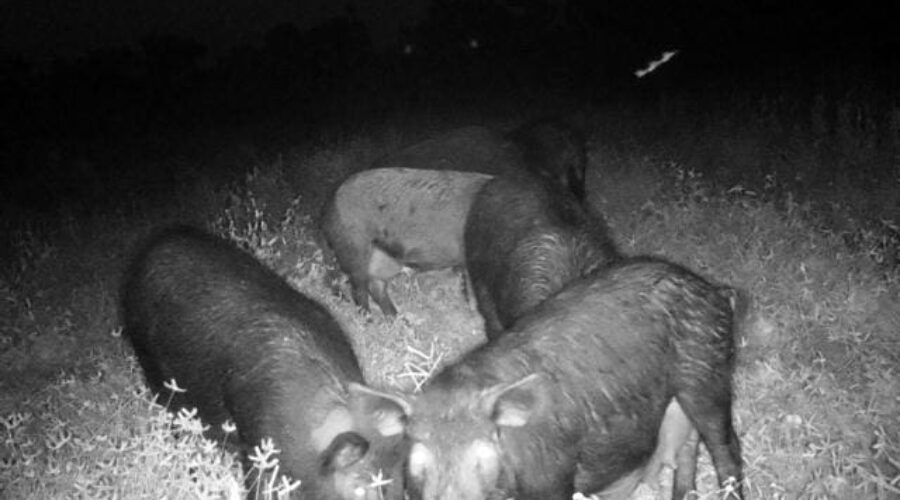Why We Hunt Wild Boar
“A hunt based only on the trophies taken falls short of what the ultimate goal should be.”
– Fred Bare
WHY WE HUNT WILD BOAR: THE FACTS
There is no doubt that the highly revered Fred Bare was absolutely right when he spoke about enjoying the hunt for something other than the desired outcome. I get that. I understand that professional outfitters are first and foremost in the people business. We get paid to create memory making sporting opportunities for our guest. With that being said, sometimes we truly need to hunt for the sole sake of killing. Wild boar hunting would be one of those times.There is a fine line between feral pigs and wild boar. For the purpose of this article, we are not going to “split those hairs”; so here is what you need to know.
Problems associated with wild boar
Most wild boar in the lower 48, descended from domesticated swine, that simply means a pig that’s wild. Once a domesticated pig enters the wild it can exhibit “boarish” features within the first thirty days. Once this happens they literally run wild causing billions, not millions but billions, of dollars worth of property damage in North America each year. Not only do they use their snouts and tusk to up root farmers’ crops but according to the CDC, “serve as potential hosts for at least 34 different pathogens that can be transmitted to livestock, wildlife, and humans”.
Overpopulation
Wild boar range from Florida to New York in the east and cover the California coast to the west. Texas alone holds 2.6 million wild boar and Florida (2nd only to Texas) has an estimated 500,000. Wild Boar can begin to reproduce around the age of 3 to 4 months old and enter their cycle every 18 to 24 days. Taking into consideration that they do breed year round and give birth to a dozen piglets as many as 3 times per year (, hunters have their work cut out for them.
WHY WE HUNT WILD BOAR: THE HUNT
Due to the fact that wild boar are an invasive species and pose a serious threat to ecological, economical, and public safety interest, they are considered by most states to be vermin. Florida is among a growing number of states that have adopted surprisingly liberal laws when it comes to hunting wild boar. In Florida, for example, there are no size restrictions, no bag limits, and hunters can enjoy open season year round. Taking into consideration the flexibility of such laws our Night Vision Hog Hunting is the most popular hunt we offer at Intercoastal Safaris.
Night Vision Hog Hunting
We hunt at night because the cover of darkness allows us to stalk the sounders (group) at close range. The pigs move at night for the same reason the hunters do; to hide. Unfortunately for them, we have thermal scopes that give us a tremendous advantage, especially when we combine that with AR-15’s and no bag limits. Pigs are smart, once we hunt a field enough for them to get the hint they simply move to the next location. Many times the larger, wiser boar will stay in the places they know we don’t want to go. Swamps and brier patches tend to be among their favorite safe havens here in the panhandle of Florida. While it is difficult to access these spots, it’s not impossible. If the hogs won’t come out, we let the dogs have a piece of the action.
Hog Dog Hunting
A Hog Dog Hunt often takes hunters on a unique wild boar hunting adventure unlike none they have experienced before. We use chase dogs to locate the wild boar and corner it until help (you and the catch dog) arrive. Once located and somewhat cornered, the chase dogs will bay (howl) to inform the hunting party of their location. Even though there are already dogs on site it often takes bringing some sort of bull dog to deliver the beginning stages of a final blow. Once the catch dog is able to control the boars head (tusks) movement, a guide jumps in and holds it down the best he can while our guests stab the boar. After a few minutes of violent squeals, the chase is over.
Try a hunt with us
If you’re looking for a slightly more adventurous trip to the beach, next time you’re in the Panama City Beach/ Destin area give us a call or book a trip now. The 500,000 pigs in Florida are not going anywhere anytime soon.
Written By: Stephen Lee



